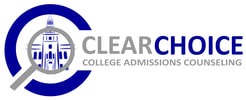With another year coming to an end, it is natural to reflect on our past and consider our future. As a college counselor, I do this with students all year long. Knowing what comes next is the first step in figuring out what we should be doing right now.
When students begin working with me, the vast majority know that their next step is college. But college is a very broad concept. There are more than 4,000 colleges in the United States alone, ranging from two-year community colleges, to four-year public schools, to private liberal arts universities, to technical institutions.. There also are a multitude of majors offered at each one. And the criteria for admission and scholarships are as varied as the institutions and majors, themselves.
So, knowing whether or not they want to attend college is the beginning to understanding what classes students should take in high school and how to spend their free time. But going a step further to identify early on where they might like to go and what they might like to study will give them the detailed map to get there.
For example, students interested in engineering will be best served by taking four or five math classes, versus the minimum graduation requirement of three. Students who want to attend UT Austin will need to take a hefty dose of advanced classes to boost their weighted GPA so that they are in or near the top 6% of their class. Prospective architecture majors will want physics, calculus and art classes on their transcript and, for some colleges, a portfolio that shows off their best work. And so on. To achieve any of these goals requires identifying them early.
Now, that might sound a bit over the top. After all, isn’t high school a time of self-exploration? Yes, it is. But it is also a time of preparation. And it is difficult to prepare when we don’t know what we’re preparing for. So my suggestion is for students to take an aptitude or work interest assessment early on in high school as part of their self-exploration. I also believe students should find out what the admission criteria are at their state flagship universities, selective universities such as Ivy Leagues (if they have the slightest interest in attending one), and any other schools of interest to them. The earlier they do this, the better prepared they will be when the time comes to apply to college and the better chance they will have of being admitted to the university and major of their choice.
I can help with this. If you’re not yet working with me and would like help identifying your goals or mapping out the route to achieve them, please reach out.

